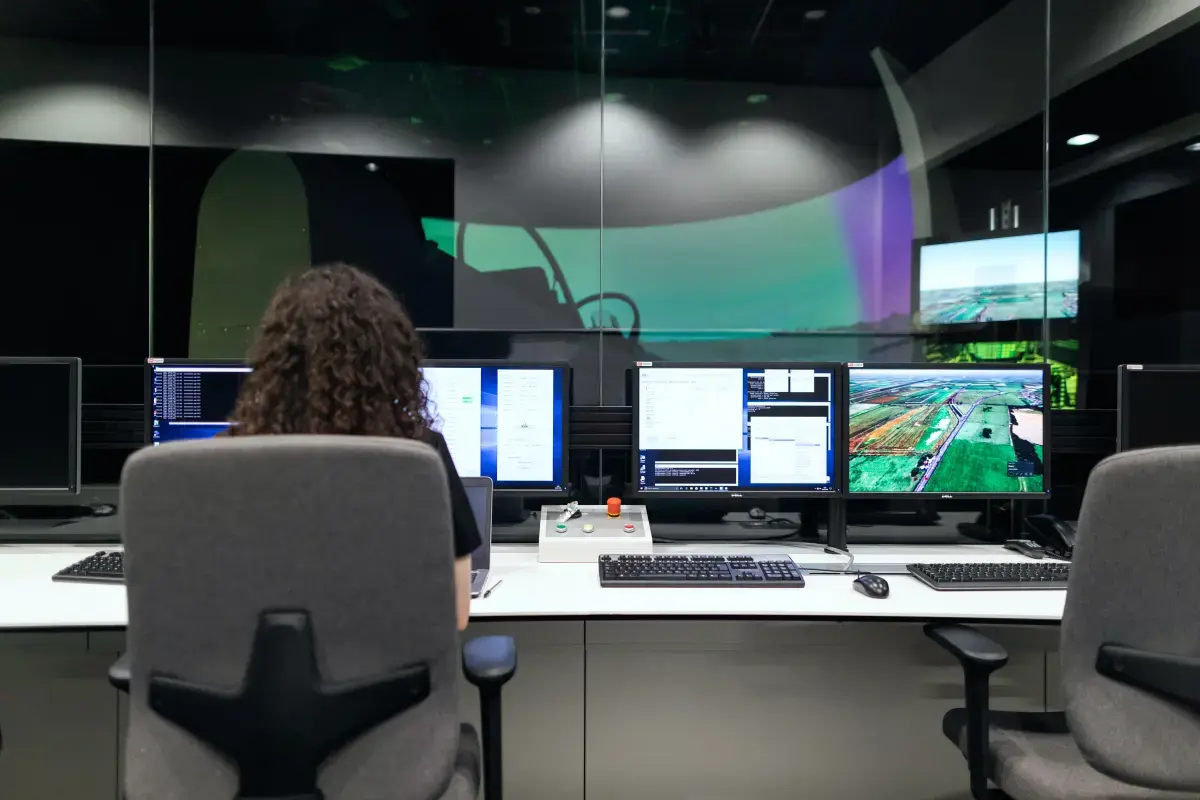
Performance Monitoring Engineer Job Description
What is a Performance Monitoring Engineer Professional?
A performance monitoring engineer is responsible for ensuring that computer systems and networks operate efficiently and effectively. They do this by designing, implementing, and maintaining monitoring solutions to detect issues with system performance. Performance monitoring engineers typically have experience working in network or system administration. They use their knowledge of how computer systems work to design software that can identify when there are problems with the efficient functioning of a system.

What does a Performance Monitoring Engineer Expert do?
This software may be designed to track specific metrics or utilization levels, raise alerts when certain conditions are met, or even automatically take corrective action if an issue is detected. In addition to developing new monitoring solutions, performance engineers also often maintain existing ones. This includes troubleshooting issues as they arise and updating the solution as needed to keep up with changes in technology or the environment it is deployed in

What are the Skills of a Performance Monitoring Engineer?
A performance monitoring engineer needs to have a deep understanding of how systems work in order to identify and diagnose potential issues. They must also be able to think critically and creatively in order to come up with solutions that improve system performance. In addition, they need strong problem solving skills and experience working with various tools and technologies.

What makes an Expert Performance Monitoring Engineer?
Some specific skills and experience that a performance monitoring engineer needs include: -In-depth knowledge of operating systems, networking, and storage architectures -Experience with one or more monitoring tools (e.g., Nagios, Prometheus) +1 year of relevant work experience in IT operations or technical support role associated with major public clouds such as AWS, Azure & IBM Cloud Monitor solution implementation for new applications on premise and/or on cloud following best practices defined by the team.Azure iaas ,platform as a service(PaaS),server less computing etc including AZURE SQL Database . Creating various types of monitors like availability monitor , Threshold Based Performance Monitor,.collectorset based log analytics query created to get data from application insights into azure Log Analytics workspace

What level of Experience & Qualifications are required to be a Performance Monitoring Engineer?
Industry Experience: 1. Extensive experience in software engineering and development. 2. Practical knowledge of performance engineering tools, techniques and approaches such as profiling, load testing, monitoring etc. 3. Ability to collect data from various sources and analyze performance issues systematically. 4. Experience with server-side technologies such as web servers (Apache/IIS) and application servers (JBoss/GlassFish). 5. Knowledge of network protocols like TCP/IP, UDP and other networking fundamentals is an advantage Training: 1. Formal training on the latest performance engineering best practices 2 Qualification in relevant technology such as Java or .NET frameworks Qualifications: 1 Certified Performance Engineer by a recognized organization e g International Software Testing Qualification Board (ISTQB), Open Group’s Certified Tester Foundation Level (CTFL) etc 2 Proven track record in successful project delivery Education Requirements: 1 Bachelors degree or higher in Computer Science or related field 2 Working understanding of computer system architecture including hardware configuration 3 Understanding of software development life cycles

What is the Salary of a Performance Monitoring Engineer?
The salary range for a Performance Engineer can vary significantly depending on experience, location, and the size of the organization. A Junior Performance Engineer typically earns between $45,000 to $60,000 per year while a Senior Performance Engineer may earn anywhere from $85,000 to over six figures. An entry level performance engineer is responsible for conducting tests and making sure that software systems are performing optimally. They typically maintain quality assurance processes by finding bugs or problems within computer systems. Depending on their specific role in an organization this position might also require knowledge of scripting languages such as SQL or Python as well as basic web technologies like PHP or HTML/CSS. A Mid-level Performance Engineer will have more responsibilities than an entry level candidate such as developing automated test plans based on requirements analysis and design; setting up test environments; debugging code; managing system maintenance tasks (e.g., log file management) and providing technical consultation when needed during development cycles among others duties related to ensuring top performance of applications and services through testing strategies & tools management activities etc.; they will be expected to earn between $65K - 80K annually according to their experience in this area.. At the senior level these professionals tend to specialize even more with high expertise in database-related items & support functions including data extraction transformation loading scripts & stored procedures tuning database queries set up monitoring solutions analyze poorly performing queries tune database servers troubleshoot replication issues etc.; These professionals are often expected to not only identify issues but quickly come up with solutions that can improve overall system performance which adds immense value for any company relying heavily on technology infrastructure hence usually attracting salaries ranging from $90K - 120k+ depending upon the type & responsibility taken along with industry standards placed under their job description at a certain workplace across different geographical regions around U.S..

What are the Working Conditions for a Performance Monitoring Engineer?
A performance engineer is responsible for ensuring the highest level of efficiency, speed, and reliability across all computer systems. This includes both hardware and software components, as well as networks. They must be able to monitor a system’s performance levels, identify potential bottlenecks or areas that need improvement, and recommend solutions accordingly. Performance Engineers may also design tests to simulate real-world user scenarios in order to evaluate how effectively a system can handle those demands. Performance engineers typically work in an office setting with the occasional travel involved when testing client sites remotely or onsite at customer locations. Working hours are usually regular business hours; however overtime may be required if projects start approaching deadlines or require additional attention due to unforeseen issues arising during testing and evaluation phases. The ability to think outside of the box and have excellent problem solving skills along with strong technical knowledge are key attributes needed for this position since it requires quick thinking while troubleshooting complex issues swiftly without compromising quality standards set by organization leaders and customers alike. Communication between various teams such as IT support staff is essential so they can exchange information effectively while working towards common goals regarding network optimization efforts involving multiple computers connected via various protocols which often operate independently from each other but still rely upon one another for successful completion of tasks assigned by end users using them simultaneously within same environment (enterprise).

What are the roles and responsibilities of a Performance Monitoring Engineer?
Install and configure monitoring tools as per the requirement
Design efficient alerting systems to notify the right people at the correct time
Develop custom scripts/plugins to monitor specific applications or services
Ensure that all monitors are configured correctly and generate accurate data
Monitor system performance in real-time and identify potential bottlenecks early on
Analyze historical data to identify patterns and trends over time
Tune monitors based on feedback from other teams (dev, ops, support etc.)
Work with developers to instrument code for better visibility into application performance
Coordinate with various teams during incident response efforts to quickly resolve critical issues
Provide regular reports on system health & performance metrics
Proactively suggest improvements in architecture/configuration/systems design
Build new dashboards & report views as needed
Maintain documentation related to monitoring infrastructure
Research new monitoring technologies & approaches
Stay up-to-date with latest industry trends
Investigate customer reported issue
Perform root cause analysis
Prepare detailed post mortem analysis report
Continuously improve processes
Participate in an on call rotation

Where can I find Performance Monitoring Engineer jobs?
- Create a profile on gigexchange and promote your Performance Monitoring Engineer skills to advertise you are Open to New Work Opportunities
- Ensure your Resume (or CV), or online work profile is up to date and represents your skills and experience. Ensure your reputation reflects your ability & attitude.
- Apply for Performance Monitoring Engineer Jobs advertised on gigexchange.
- Practise Performance Monitoring Engineer interview techniques to ensure you represent your personality and ability succinctly and confidently.
- Accept the job offer if the salary meets your expectations and the employer mission and purpose reflects your core values.
Jobs
What are the best job boards for Performance Monitoring Analyst jobs?

How can I hire Performance Monitoring Engineer staff online for my business?
The best job board for recruiting Performance Monitoring Engineer experts is gigexchange.com. Advertise full-time, part-time or contract jobs to find, hire & recruit trusted, experienced and talented Performance Monitoring Engineer candidates near you.

Are Performance Monitoring Engineer roles in demand in 2026?
Performance Monitoring Engineer experts are still in high demand in 2026. If you are an experienced Performance Monitoring Engineer or looking to train and become one. The job market is looking strong for Performance Monitoring Engineer jobs near me.